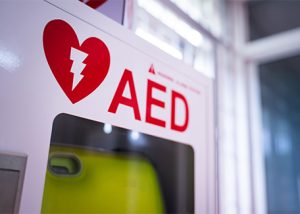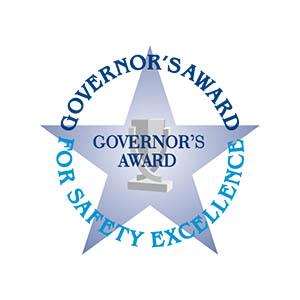By Ed Kauffman, Safety Training Manager
Did you know that approximately 11 percent of adults in the United States suffer from some form of heart disease? According to the Centers for Disease Control and Prevention (CDC), heart disease is the leading cause of death for people in the United States. On average, one person dies every 33 seconds in the United States from a heart-related illness. However, we can take steps to help reduce this likelihood through prevention and preparation.
Prevention
 The CDC found that nearly 80 percent of all heart-related diseases are preventable and have identified some high-risk behaviors that increase the likelihood of heart disease. By taking action to control the following risk factors, we can drastically reduce the chance of suffering from heart disease:
The CDC found that nearly 80 percent of all heart-related diseases are preventable and have identified some high-risk behaviors that increase the likelihood of heart disease. By taking action to control the following risk factors, we can drastically reduce the chance of suffering from heart disease:
- High blood pressure
- High cholesterol
- Diabetes
- Obesity
- Unhealthy diet
- Sedentary lifestyle and lack of physical activity
- Smoking
- Excessive alcohol use.
Preparation
 Being prepared to provide assistance to someone suffering from a heart-related medical emergency is critical to saving someone’s life. A study by The New England Journal of Medicine found that CPR nearly doubles the chance of survival from cardiac arrest and the American Heart Association determined that use of an automatic external defibrillator (AED) within the first minute of suffering from sudden cardiac arrest has a 90 percent survival rate. Below are some tips to make sure you are prepared to help before a heart-related medical emergency happens.
Being prepared to provide assistance to someone suffering from a heart-related medical emergency is critical to saving someone’s life. A study by The New England Journal of Medicine found that CPR nearly doubles the chance of survival from cardiac arrest and the American Heart Association determined that use of an automatic external defibrillator (AED) within the first minute of suffering from sudden cardiac arrest has a 90 percent survival rate. Below are some tips to make sure you are prepared to help before a heart-related medical emergency happens.
» Education. Ensure your and others are certified to properly provide CPR, use an AED, and administer basic first aid. Whether at home, at work, or out in the world, these skills can be used in any facet of your life to help save another person’s life.
» Equipment. Keep any necessary first aid equipment in easily identifiable locations in both your home and the workplace. Check these kits regularly to ensure all items are in good functional condition so they work when seconds matter.
» Awareness. Communicate to friends, family, and coworkers what to do if an emergency happens, where any life-saving emergency kits are located, and call 911 immediately when an emergency happens.
If someone does have a heart attack or other cardiac episode, 911 must be called immediately. In the time before an ambulance arrives, well-trained first responders can have a substantial impact on the likelihood of survival. In cases of sudden cardiac arrest, an AED used in conjunction with high-quality CPR can improve a person’s odds of survival.
Does your company need first aid training? RETTEW offers a variety of courses and services, like First Aid, CPR, Bloodborne Pathogens, and AED, which is certified by the American Safety and Health Institute, to ensure you and your staff are prepared. Contact us to learn more about RETTEW’s comprehensive and compliant safety training programs and how classes can be customized to your facility and response plan.
Additional Offerings
Safety training and consulting are only some of RETTEW’s 600-plus services. Our safety team works hand in hand with engineers, scientists, project managers, and other technical experts at places such as manufacturing facilities, drill pads, and commercial construction sites. We are well respected for our work in a diverse number of industries and are known for ensuring workers and equipment remain safe, which keeps your projects on track and your bottom line growing.
